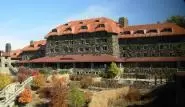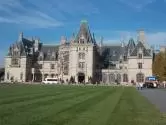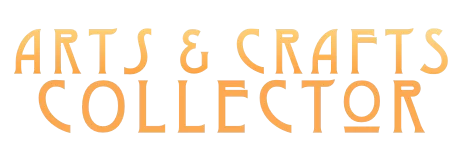A Tale of Two Talks

As my various careers have progressed over the years, I have often found myself being called upon to be a public speaker. Fortunately, my first career was that of a high school English teacher, and my five years standing in front of a classroom full of 17-year-olds prepared me for just about everything I have encountered since then.
But that is not to say the unexpected still does not happen when it comes to standing in front of an audience.
In Salt Lake City two weeks ago, I was giving talks on wood finishing, starting with my opening line, “Wood is unpredictable.”
As I was reminded this past week back in Asheville, so are speaking situations.
On this particular day I had two talks booked: a history of the Grove Park Inn (top) to a group staying at the historic hotel, and one for our local architects on Frederick Law Olmsted, the Father of Landscape Architecture, whose final major commission was here in Asheville, attempting to tame George Vanderbilt’s 146,000 acre back yard at the Biltmore Estate (middle).

I arrived at the Grove Park Inn at seven in the morning, expecting to find nearly 72 people in the audience, as the group’s organizer had ordered that many copies of one of my books. Instead, eight showed up. The rest had opted to select a breakfast option without my presentation, preferring instead to talk with each other rather than listen to me. Ouch!
Nevertheless, we had fun, as I chatted with them far more informally about the many nefarious characters who have passed through the doors of the Grove Park Inn over the course of the past 102 years. Being part of such a small group, they didn’t hesitate to ask questions as I rambled on, which made the experience even more enjoyable for all of us.
My noon talk before more than sixty area architects had me just a little worried, for I suspected they had far higher expectations than did my breakfast club. But this was a Power-Point presentation I had first given at last February’s National Arts and Crafts Conference, so I had my slides well-organized, my text printed out with each image carefully marked, and everything secured in a three-ring notebook. I had arrived early enough to meet with Jess, who was handling the audio visual equipment, and to practice reading my text along with the images a few times before the architects began filing in for their monthly luncheon presentation.
After the architects had all been served, Jess came to the podium, welcomed the group, and introduced me. Then, just as I was getting settled in, with my notebook open in front of me, Jess slid to the back of the room and turned off the lights.
The room went dark. I mean, really dark.
And as it did, my carefully typed out text simply disappeared before my eyes.
As I began stumbling through my initial slides, my mind was scrambling to find a solution. The podium had no light. My phone was stowed in my briefcase. The screen was too far from the podium to cast any light on my notebook, and I couldn’t leave the podium and stand anywhere else, as the podium also held the computer I was to use to advance the images and the fixed microphone.
I was stuck.
Thirty-five minutes later, I was a sweaty mess, having presented one of the worst talks of my career before one of my most important audiences. They, of course, were respectful and appreciative, but I could tell by the looks on their faces when Jess finally turned the lights back on (there was no dimmer switch) that they were somewhat disappointed.
As soon as their polite applause died away, and Jess returned to the podium, I grabbed my briefcase and fled out into the bright sunshine, relieved to have escaped, and disappointed with myself for not having anticipated what had just happened.

Until next Monday,
Make this a week to remember.
Bruce
